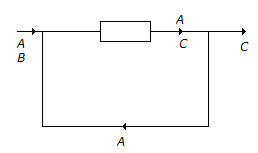Chemical Engineering :: Stoichiometry
-
In physical adsorption, as compared to chemisorption, the
-
The combustion equations of carbon and carbon monoxide are as follows:
C + O2 = CO2, ΔH = - 394 kJ/kg . mole CO + 1/2 O2 = CO2, ΔH = - 284.5 kJ/kg. mole.
The heat of formation of CO is __________ kJ/kg. mole. -
Dissolving a solute in a solvent does not change its
-
A reduction process is accompanied with increase in the
-
The reaction A + B → C has been conducted in a reactor as shown below.

The number of boundaries around which material balance can be written, are -
Heat of transition is the heat evolved or absorbed, when a substance is converted from
-
The forces causing the vaporisation of liquid are derived from the Kinetic energy of translation of its molecules. The heat of vaporisation
-
Which of the following gravity scales is used exclusively for liquids heavier than water ?
-
For any system, the __________ heat of solution is dependent on the temperature and the adsorbate concentration.


 Whatsapp
Whatsapp
 Facebook
Facebook

